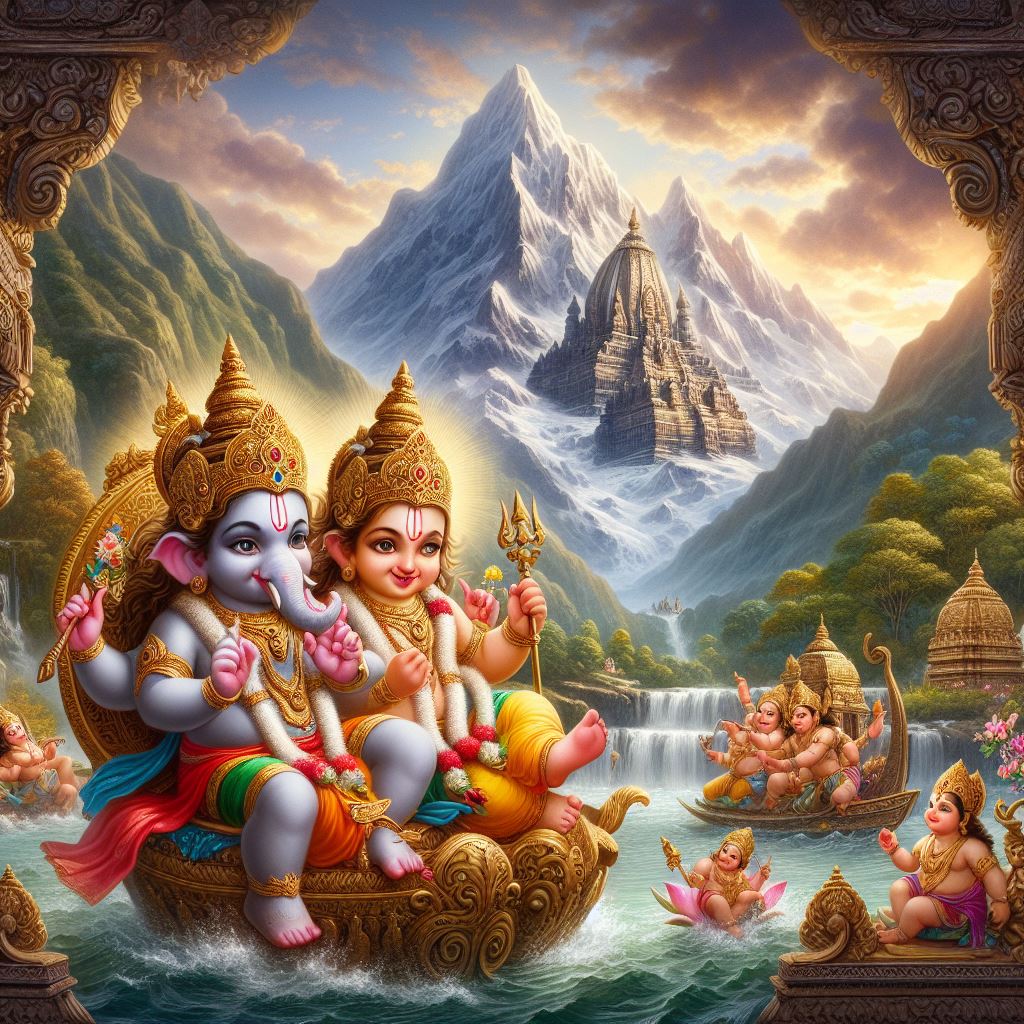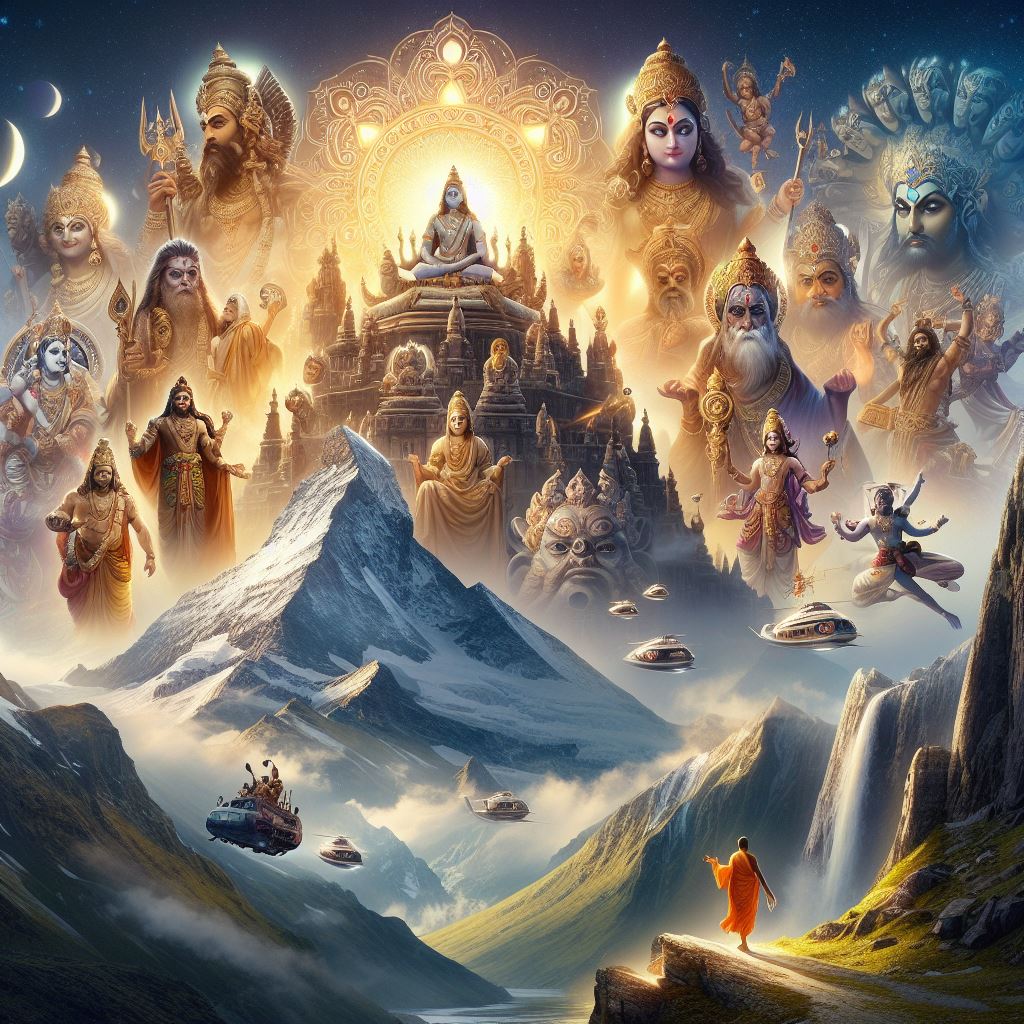The Glory of kṣamā (forgiveness)
Introduction:
The ‘daṇḍa (punishment)’ is a state’s concern rather than an individual’s responsibility. If every aggrieved person starts taking the law in their hands and goes punishing the offenders, that would lead to anarchy and chaos. When a King punishes a criminal, he doesn’t do that in personal interest; rather the punishment is accorded keeping community welfare in the mind. Also, the punishment is given just in the proportion of the offence committed. Decision is taken keeping the ‘daṇḍanīti (penal code)’ in reference instead of basing the decisions on emotions. No other person other than the offender is harmed in such a model.
On the other hand, when it comes to an individual’s personal vengeance, often humans cross the boundaries of objectivity and more often than not inflinch pain on the opponent in much larger proportions than the measure of the offence committed. The decisions are based on the intensity of the wrath and many a times the harm is extended to others like family members and friends of the offender as well even if they do not have any involvement in the offence. An individual’s vengeance arises from wrath and not out of judgement of the mind.
That’s why our scriptures always preach us to conquer anger and stabilize our mind. A controlled mind can have a stable intellect which can discriminate right action from the wrong one. Whereas, a mind overpowered by anger, often misses to see the fine line and crosses it.
This is the reason while violence in the form of ‘dharma yuddha’ or punishments accorded by the King adhering to the ‘daṇḍanīti’ are never disapproved by the śāstra-s; they have time and again preached about controlling the emotion called anger and inculcating the great quality called forgiveness.
In this article we will discuss about the greatness of kṣamā (forgiveness)!
THE GLORY OF KṢAMĀ (FORGIVENESS)
In the Mahābhārata, Vana Parva, Yudhishthira narrates to Draupadī, the greatness of the virtue called ‘forgiveness’. He says that in the days of Yore Sage Kashyapa had spoken about this. This is called “काश्यप गीता (Kāshyapa gītā)”. Well, there is a gap among Hindus that majority of them know the existence of only one gītā i.e., the Bhagavad Gītā. But truth is far from that. Within the Mahābhārata itself there are at least 28 Gīta-s. If we count the Purāña-s also then the number of Gīta-s would be huge.
Alright. So, here this discourse that Yudhishthira is narrating is from ‘Kāshyapa Gītā’ which speaks about the greatness of forgiveness. I’ll cite here one central verse which sums up everything. It says:
“क्षमा तेजस्विनां तेजः क्षमा ब्रह्म तपस्विनाम् ।
क्षमा सत्यं सत्यवतां क्षमा यज्ञः क्षमा शभः ॥” (MBh ३-२९-४३)
“Forgiveness is the might of the mighty; forgiveness is the glamour of the ascetic, forgiveness is the Truth of the truthful, forgiveness is sacrifice; forgiveness is quietness of the mind”.
Now, let me tell you an interesting connection here. The beauty of our sacred texts is that they are not dozens of disjoint books rather they all are the pieces of one gigantic jigsaw puzzle. The more we read the better connections we can form.
In the ‘Vishnu Purāña’ we can read sage Parasara’s words about the glory of forgiveness. That immediately brings to our mind the similarity of his words with what Mahābhārata said.
In the ‘Vishnu Purāña’ exists this teaching in the seed form, where sage Parasara teaches to sage Maitreya that anger is a vice and forgiveness is a virtue and concludes with the verse:
“क्षमासारा हि साधवः।” (VP 1:01:20), meaning,
“Forgiveness is the wealth of the virtuous”.
These words were not exactly of Parasara himself. He was recollecting what his grandsire Sage Vashishtha had spoken to him and uttered his words there.
Vashishtha is like the very personification of ‘knowledge’. Parashara learnt this teaching from Vashishtha directly. Likewise, Kashyapa also might have gained through same source and elaborated it further in the form of ‘Kāshyapa Gītā’. This again shows why knowledge should always have a continuity called ‘sampradāyam (tradition)’.
For every teaching there should be a preceptor who should have learnt from his predecessors and each such preceptor should have their own predecessor… likewise the original sou ce should coincide with either Brahmā or Nārāyaña or Shiva or Vashishtha or Sanatkumāra.
Then such an ancient reaching is termed and accepted as “authentic” and becomes a “pramāña”.
Well, why did Vashishtha teach the greatness of forgiveness to Parashara? There is an interesting story behind it. Parashara’s father was sage Shakti who was killed by Rakshasas employed by Sage Vishvamitra due to his rivalry with Vashishtha. So to avenge his father’s death Parashara conducted a sacrifice where by mantra-s he was able to make all Rakshasas get pulled into the fire altar and get destroyed. When only few of them where left Vashishtha intervened and asked Parashara to stop the sacrifice and forgive them.
This is yet again a great reminder of how history repeats itself in different forms. It reminds how King Janamejaya conducted a snake sacrifice to kill all the snakes because his father Parikshit was killed by snake Takshaka. His fire sacrifice also was almost killing every snake and then was interrupted and stopped by sage Āstika.
To conclude – Even in grave situations of loss of the beloved ones, while bent on taking revenge for their beloved ones these high souled beings were stopped by other wise men, and listening to the wise councel they gave up wrath and adopted forgiveness. Forgiveness doesn’t come to everyone. It is the ornament of the really capable people only. Parashara had the power to destroy all species of Rakshasas by his mantra-s and sacrifice he didn’t need any weapon or to wage battle itself. Just a seat to sit and an altar to pour libations uttering mantra-s. And there was nothing the Rakshasas could have done to prevent their deaths. But he finally chose to forgive them.
Likewise the Brahmana-s who were officiating the fire sacrifice for Janamejaya had the power to destroy all species of snakes. But upon being counselled to desist Janamejaya chose to forgive and stopped the sacrifice.
This world takes forgiving people very lightly, they think people who forgive are weak, but the truth is contrary. Only the powerful can really forgive. A snake whose fangs are removed, if says, “go I won’t bite you”, doesn’t make sense. A snake whose fangs are intact and have venom, if still chooses not to bite and let’s the man escape, that shows the snake’s greatness.
Likewise, people who forgive are the ones who are mentally very strong. Forgiving takes a large heart. Beating someone and breaking bones is easy. Letting one go is difficult.
In today’s world, unfortunately, people keep a register of every petty grievance and make it a point to pay back when time is ripe. Records are kept for Misunderstandings, conflicts, fights, etc., and those files lead to break-ups in all relations. Brothers can’t stand brothers, relatives can’t co-exist with relatives, married couples get into divorces, lovers have no fidelity and keep hopping from one EX to another EX and settle with none.
Where is this world heading towards?…..
….A question that remains for posterity!…
FAQ-s
This article addresses the below FAQ-s:
- What is the meaning of Kshama?
- What Hinduism teaches about Kshama?



